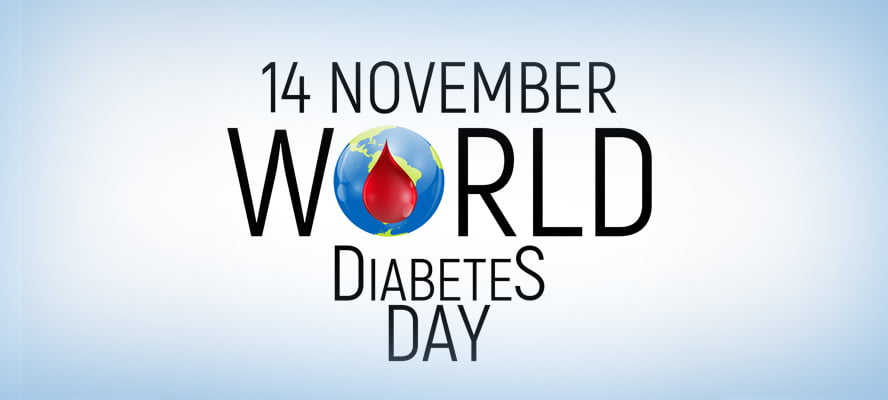World Diabetes day
World Diabetes Day is the primary global awareness campaign focusing on diabetes mellitus and is held on 14 November each year. World Diabetes Day (WDD) was created in 1991 by IDF and the World Health Organization in response to growing concerns about the escalating health threat posed by diabetes. World Diabetes Day became an official United Nations Day in 2006 with the passage of United Nation Resolution 61/225. It is marked every year on 14 November, the birthday of Sir Frederick Banting, who co-discovered insulin along with Charles Best in 1922.
Diabetes is a chronic health condition that affects how your body turns food into energy. Most of the food you eat is broken down into sugar and released into your bloodstream. When your blood sugar goes up, it signals your pancreas to release insulin. Insulin acts like a key to let the blood sugar into your body’s cells for use as energy. If you have diabetes, your body either doesn’t make enough insulin or can’t use the insulin it makes as well as it should. When there isn’t enough insulin or cells stop responding to insulin, too much blood sugar stays in your bloodstream. Over time, that can cause serious health problems, such as heart disease, vision loss, and kidney disease.
Symptoms
- Urinate (pee) a lot, often at night
- Are very thirsty
- Lose weight without trying
- Are very hungry
- Have blurry vision
- Have numb or tingling hands or feet
- Feel very tired
- Have very dry skin
- Have sores that heal slowly
- Have more infections than usual
Treatment
The major goal in treating type 1 and type 2 diabetes is to control blood sugar (glucose) levels within the normal range, with minimal excursions to low or high levels. Type 1 diabetes is treated with: insulin, exercise, and a, type 1 diabetes diet. Type 2 diabetes is treated: First with weight reduction, a type 2 diabetes diet, and exercise Diabetes medications (oral or injected) are prescribed when these measures fail to control the elevated blood sugars of type 2 diabetes. If other medications become ineffective treatment with insulin may be initiated.
Prevention
- Working with a trained coach to make realistic, lasting lifestyle changes.
- Discovering how to eat healthy and add more physical activity into your day.
- Finding out how to manage stress, stay motivated, and solve problems that can slow your progress.
- Getting support from people with similar goals and challenges.
- Eat a High-Fiber Diet
- Optimize Vitamin D Levels
- Vitamin D is important for blood sugar control.
- Drinking water instead of other beverages may help control blood sugar and insulin levels, thereby reducing the risk of diabetes.

